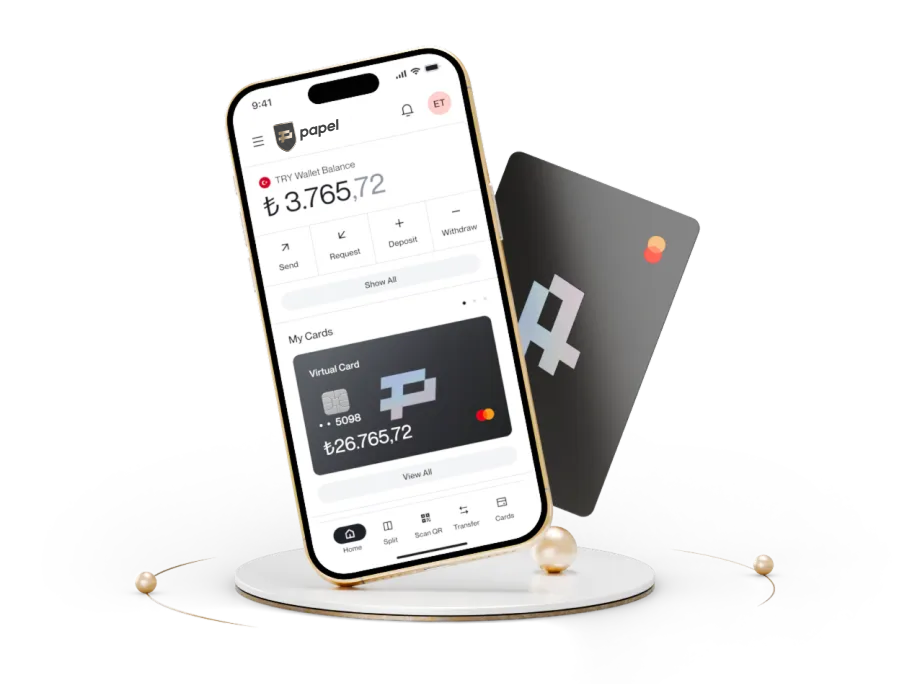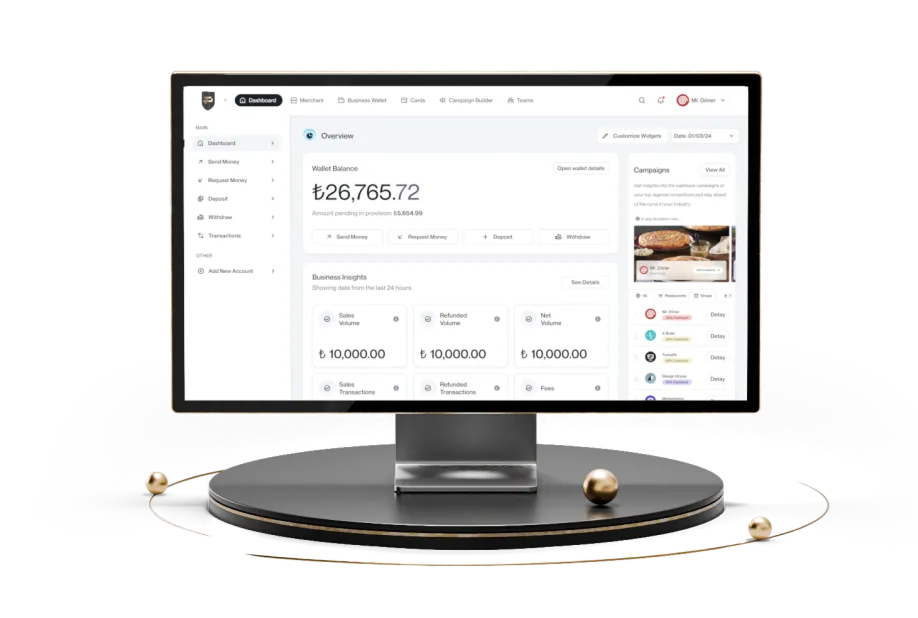Unlock Growth in 2025: Your Essential Guide to POS Systems
POS systems boast a scalable architecture to adapt to business growth. The advent of technology has enabled the use of multiple systems and the efficient management of several sales points. These systems gather data on transactions, payment methods, and top-selling products, offering insightful reports to business owners. Such data can be instrumental in analyzing business performance and making strategic decisions. POS systems are pivotal banking technologies that facilitate the expansion and growth of commerce.

The History of POS Systems
Although they may seem like a modern invention, POS systems, at least their analog predecessors, have been integral to our lives for quite some time. The first modern POS system was a cash register developed in 1879 by James Ritty, an American inventor. Ritty's invention, originating from Ohio, ensured error-free transaction recording, enabling improved ledger maintenance and capital management. Over the years, POS systems have evolved significantly, with a landmark innovation being IBM's first computer-assisted POS system in 1973. The 2000s marked the emergence of touchscreen interfaces, PC-based POS systems, and modern POS systems utilizing cloud technology, which offer easier integration with other systems. Today's POS systems significantly impact businesses by facilitating report tracking, inventory management, employee monitoring, and enhanced customer service. The history of POS systems mirrors a journey of continuous technological advancements shaping how businesses conduct transactions and manage operations.
Functions of POS Systems
In physical and virtual stores, POS systems streamline and automate numerous transactions, alleviating the operational burden on businesses and providing customers with an efficient shopping experience. Regardless of the business size, from a single-outlet boutique café to a chain of restaurants, POS systems serve multiple functions, including:
Payment Processing
POS systems enable the collection of payments for goods or services through various methods like credit cards, debit cards, meal vouchers, contactless payments, or QR codes.
Returns and Cancellations
Just as they facilitate payment collection, POS systems also streamline the process for returns and cancellations.
Stock Tracking
Automatically updating product stock quantities, POS systems allow business owners to monitor inventory levels and plan replenishments accordingly.
Reporting and Analytics
Immediate tracking of sales, returns, and inventory levels is possible with POS systems. Businesses can utilize this data for detailed analyses of products and services. Owners generating monthly, quarterly, or annual reports gain valuable insights for boosting sales, minimizing returns, and optimizing inventory management.
Loyalty Programs
Another critical feature of POS systems is their ability to store customer information, enabling the customization of loyalty campaigns, offering personalized deals, and enhancing customer loyalty.
Integrated Accounting
Especially evident in recent developments, POS systems seamlessly integrate with accounting software, simplifying financial transactions. Moreover, automating sales processes through integrated POS systems enhances operational efficiency and customer experience.

Benefits of POS Systems for Businesses and Customers
As indispensable technological tools of modern commerce, POS systems offer numerous advantages for merchants and shoppers. These systems enhance the shopping experience by making it more convenient and enjoyable and provide operational benefits for businesses. Among these advantages are:
For Businesses
Speed and Efficiency: POS systems accelerate transactions and diminish the need for manual calculations or record-keeping.Inventory Management: By automatically tracking product inventory, POS systems aid businesses in managing stocks more effectively, reducing surplus inventory costs and lowering the risk of stockouts.Sales Analytics: Recording sales data, POS systems allow businesses to identify best-selling products, peak sales periods, and more, facilitating informed strategic decision-making.Traceability: Every transaction is meticulously recorded, enabling businesses to swiftly detect discrepancies or fraudulent activities, thereby enhancing financial security.Payment Diversity: POS systems simplify accepting various payment methods, integrating options like credit cards, debit cards, digital wallets, and meal vouchers.

For Customers
Quick and Easy Payments: Transactions are expedited, allowing for swift and hassle-free payment.Digital Receipts: POS systems reduce paper waste and simplify customer receipt management by offering digital receipts.Enhanced Security: Payments are processed securely, safeguarding transactional integrity.Reduced Cash Dependency: Eliminating the need to carry cash, payments are completed within seconds.Loyalty Rewards and Discounts: Some systems facilitate loyalty programs or discounts, encouraging repeat business.Efficient Returns and Exchanges: POS systems streamline the process for product returns or exchanges, enhancing customer satisfaction.
Types of POS Systems
Fixed POS: Utilizes dial-up or IP/ADSL connections, with dial-up operating via a fixed phone line and IP/ADSL relying on wired or wireless internet.Portable POS: Known as mobile POS, these systems can process payments anywhere with GSM coverage.Cash Register POS: Combines cash register and POS functionalities, suitable for businesses requiring mobile POS capabilities.Virtual POS: Facilitates secure online payment transactions for e-commerce ventures.Self-Service Kiosk POS: Enables customers to place orders and make payments without staff assistance.Soft POS: A mobile application transforming smartphones into POS terminals using NFC technology, offering a cost-effective, easy-to-set-up payment solution.Terminal POS: Equipped with extensive features for large retail operations, supporting stock management, customer relationship management, and sales analysis.Multichannel POS: Integrates online and in-store sales, managing customer databases and facilitating seamless transactions across channels.Open Source POS: Provides customizable and cost-effective solutions, allowing users to tailor the system to their specific business needs.
Selecting the right POS system depends on the business's size, sector, and customer service approach, ensuring the chosen system aligns with the business's operational requirements and goals.

POS Commission Rates
As of 2024, POS commission rates vary by provider and transaction type, typically ranging from 0,89% to 10%. Virtual POS products offered by some banks follow similar rates, which may fluctuate based on the year, bank promotions, and the operational scope of the online store.
Acquiring a POS System
Obtaining a POS system usually involves visiting bank branches, although some banks and payment institutions offer online applications. The application process may require submitting documents such as an ID copy, chamber of commerce registration, and tax plate at the bank branch. Each bank or payment institution may have different document requirements and application conditions, so thorough research is essential to find a POS provider that matches the business's needs and operational areas.

